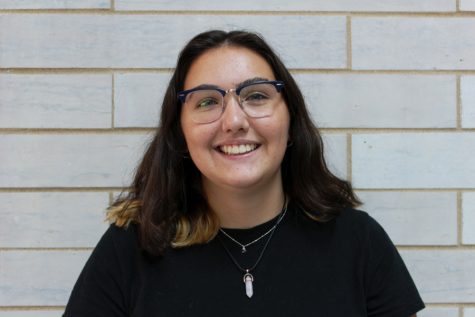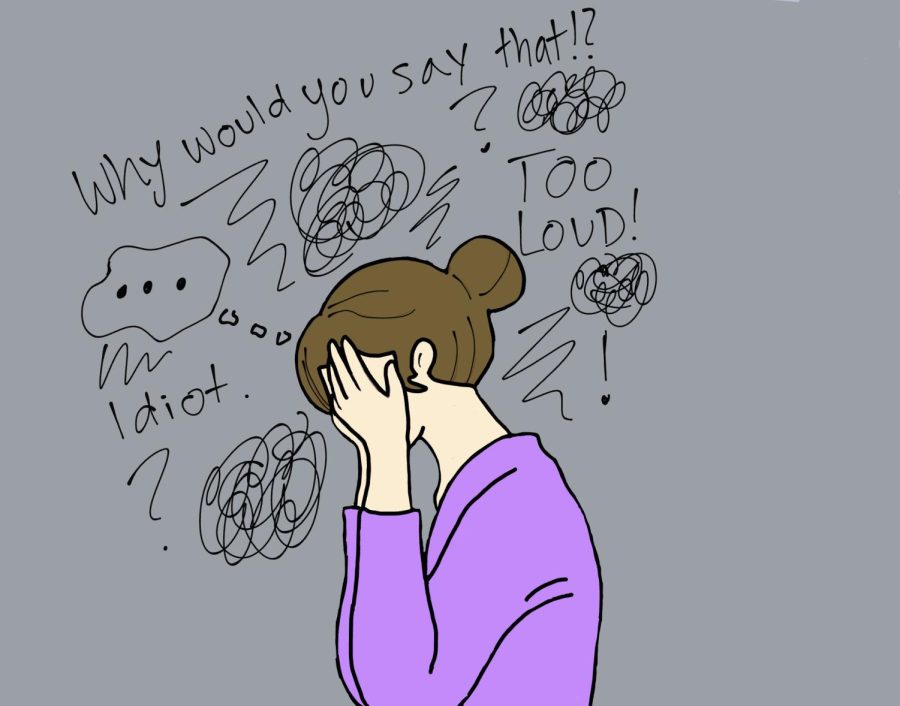Living with social anxiety
Social anxiety may cause one to have overwhelming thought doubt and anxiety, caused by a social interaction.
“Why’d you say that? Stupid, stupid, stupid.”
The little voices tease me in my head, and my mind goes into overdrive. People are watching, they’re judging and hating as my cheeks become all-too red and my hands become clammy. The loud voice orders me to leave, to disappear into thin air; all I want to do is to curl up in my shell and become invisible.
I’ve been considered shy my whole life, doing things like preferring to work alone at school and avoiding being called on in class. However, it wasn’t until freshman year of high school when my therapist had mentioned something called social anxiety disorder.
In the most simple terms, social anxiety disorder is a form of severe anxiety and phobias that come with social interactions or relationships, but to me, it’s so much more than a definition.
It all started in seventh grade, when one day I began to feel like I was having a heart attack out of nowhere. Suddenly, my heart began to beat out of my chest and the voices around me began to blur in my head. I was sure I was going to die right then and there in the middle school cafeteria.
This was my first anxiety attack.
I spent the next year and a half silently having these “episodes” of overwhelming anxiety in the quiet of my own mind. I slowly began to lose friends and spend more time in my room, only talking with my parents from time to time. I knew this wasn’t how I should feel, and I finally asked my mom to help me find a therapist.
At the moment it didn’t seem like a big deal, I needed help and I asked for it, simple as that; however, looking back, it was the best decision I had ever made. I stood up for myself, understood and accepted that I needed help and got it.
Now, it may not be this easy for everyone, so I am incredibly grateful for the help that I have received. There are various reasons one may not be able to get the mental health help they need; it could be financial issues, family conflict, low self-esteem or other conflicts.
Over the next two years, I would work with my therapist through Cognitive Behavioral Therapy, a form therapy focused around challenging the negative behavior. In my case, I would go through weekly tasks, slowly building my healthy coping skills for my social anxiety. These coping skills would include reframing negative thoughts, meditation and various breathing exercises.
Now I wish I could say that therapy has completely “cured” my social anxiety, but that’s really not the truth of it. I continue to get overwhelmed in crowds from time to time and talking to people still isn’t very breezy, but I have made so much progress since beginning therapy.
Mental health in our growing society unfortunately continues to be a social stigma, being seen as a sign of weakness or fault. However, in my opinion, getting mental health help and being able to advocate for yourself is a major indication for strength. To be able to speak up and take that risk of being vulnerable shows that you are willing to advocate for yourself and make yourself heard.
So, if you or anyone you know is in need of help, don’t be afraid to speak up.



Sally • May 10, 2022 at 2:17 pm
I love this Anika. Thank you for sharing